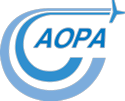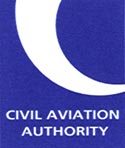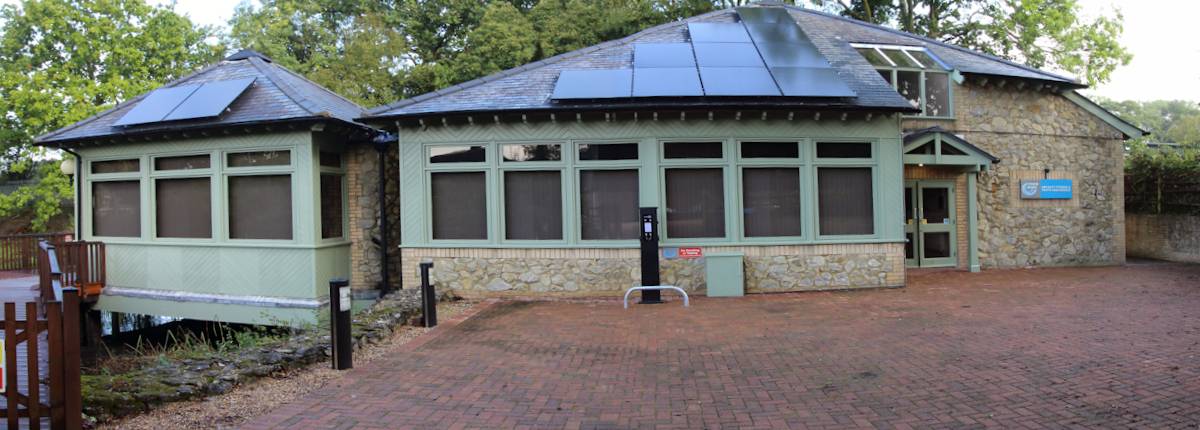View our latest and past news items.
- Details
- Published:
 |
Updated Safety Sense Leaflet: Aerobatics |
The CAA have published an updated Safety Sense leaflet providing guidance to pilots on Aerobatics, covering an introduction to the subject and associated best practices.
This forms part of the popular Safety Sense series which the CAA is currently updating.
You can find a list of AOPA Corporate members who offer the AOPA Aerobatics Certificate training course here.
Your training organsiation will provide you with the relevant syllabus. You can purchase your own personal copy of each syllabus here, but NOTE that the syllabus is NOT a reference book or training manual.
- Details
- Published:
 |
Infringement team podcast and resources for pilots flying in the Solent area |
How Local Airspace Infringement Teams work, our latest General Aviation podcast, looks at the work of the Wessex Local Airspace Infringement Team (LAIT) to help reduce infringements.
For pilots planning to fly in the area we’ve published new resources from the team, including a new hot-spot narrative and local Frequency Monitoring Code guide on the Airspace & Safety Initiative website: airspacesafety.com/solent
There are 12 LAITs across the UK. Each covers an infringement hot-spot and is focussed on helping to reduce airspace infringements through local initiatives and targeted actions.
- Details
- Published:
 |
VHF Low Level (LL) Common Frequency |
The VHF Low Level (LL) Common Frequency is being permanently introduced in the UK.
With an ever-increasing trend of Military versus Civilian aviation AIRPROX below 2000 FT AGL, the aim of the LL Common Frequency is to improve the barriers to mitigate against Mid-Air Collisions in the UK Low Flying System (UKFLS).
The channel assigned is 130.490 MHz and is to be known as the “LL-Common Frequency”.
Details of the LL Common Frequency can be found in AIC P 047/2023
- Details
- Published:
 |
Flying Reporter Aerodrome Reviews |
Airfields are critical to the infrastructure that allows General Aviation to be sustainable. Not only do they provide a place to take off and land but also provide a base for numerous employment opportunities including essential maintenance services. Far too many are under threat and we must all do our part to protect them and it is one of the key themes under the AOPA influencing agenda.
Jon Hunt, the Flying Reporter, is currently undertaking a series of airfield reviews to promote a range of different General Aviation aerodromes around the country that will hopefully encourage pilots to try new destinations. We think this is a great initiative and so AOPA have sponsored those reviews and Included in each review is a new membership offer to join AOPA.
You can find out more about the Flying Reporter here.
AOPA do not interfere with the content of the reviews nor decide where he goes and any views expressed by Jon are his alone.
I hope that you find Jon's review's of interest and try out some new destinations as a result and maybe you can use this new found incentive to spread your wings and make a step towards your next AOPA Wings Award level.
Martin Robinson
CEO AOPA
- Details
- Published:
 |
Talking Radio Telephony |
The latest in the General Aviation podcast series is a special episode focussing on Radio Telephony.
We speak with David Woodward and Anthony Hatch whose original idea for this podcast came from their work with Local Airspace Infringement Teams.
With flight instructor, RT examiner, aerodrome FISO and NATS ATCO experience between them, we talk through some of the general issues surrounding the use of RT. Looking at both pilot and controller perspectives, with some practical guidance and a request to let us know what you might like to hear covered in the future.
- Details
- Published:
 |
Department for Transport: General aviation handbook |
The Department for Transport have published this guide: General aviation handbook.
This handbook provides an introduction to the general aviation (GA) sector. The sector includes all non-scheduled commercial civil aviation and represents a diverse range of activity ranging from emergency services to recreational flying.
It outlines the economic, social and infrastructural value of GA and the sector’s supporting airfield network.
It also explains how the sector can work with stakeholders, such as local authorities to improve operations, safety and services for the benefit of businesses, the economy and the community.
The handbook is for stakeholders including:
- the GA sector and associated organisations
- local authorities
- other private organisations
- Details
- Published:
 |
Farnborough Airspace Change Proposal - Post Implementation Review Update |
The CAA has received the Farnborough Post Implementation Review sponsor’s report. The CAA's Farnborough Airspace Change Proposal webpage has been updated with this information:
Post implementation reviews are a rigorous assessment by the CAA of whether the anticipated impacts and benefits, set out in the original airspace change proposal and decision, have been delivered and if not to ascertain why and to determine the most appropriate course of action.
The CAA’s review will include an assessment of aircraft using Farnborough airport, of aircraft using the airspace that was the subject of the change and of aircraft flying in the vicinity of the airspace that was the subject of the change. The CAA has specified data requirements for the PIR that will enable that assessment.
The CAA has received specific queries from stakeholders and confirms:
safety is the CAA’s primary statutory duty and the CAA will be carefully reviewing the PIR data to assess the impact of the new airspace design on safety; and
the CAA will also be assessing the impact of the change on noise based on an analysis of the number, type and height of aircraft on which data has been collected by the sponsor as required by the CAA.
The CAA now invite stakeholders to submit their own observations via email to
The CAA will aim to produce a PIR review report within three months.
This activity is not a review of the decision on the airspace change proposal, and neither is it a re-run of the original decision process.
Upon completion of the CAA’s review, we may:
- confirm that the implemented design satisfactorily achieves – within acceptable tolerance limits – the objective and terms of the CAA’s approval, and the change is confirmed; or
- require modifications to better achieve the objective and terms of the CAA’s approval
- Details
- Published:
 |
Flying over gliding sites |
- Details
- Published:
 |
New and updated Safety Sense Leaflet: Distraction |
The CAA has published an updated Safety Sense leaflet providing pilots with the right strategies to help avoid distraction and interruption, be more aware of the dangers and reduce the risk to your flying.
Consider mitigations within your Threat and Error Management (TEM) approach. More information on TEM can be found on the Airspace & Safety Initiative website.
This forms part of the popular Safety Sense series which the CAA is currently updating.
- Details
- Published:
 |
Removal of email submissions for NOTAM |
With effect from 10 August 23, NOTAM submissions via email will no longer be accepted by the UK NOF.
In support of this, NATS will make available its AFTN NOTAM functionality for free, for all users. This facility will be available via AFPEX from June 15th: www.myafpex.co.uk
Apply for an AFPEX account here: https://ts1.flightplanningonline.co.uk/applyingForAnAccount.html
AFPEX Help/Guides are available here: www.myafpex.co.uk/guides/notam.php
Further details are available in AIC Y039/23.
- Details
- Published:
 |
General Aviation: Consultation on advance information requirements for international flights |
The Home Office has published this consultation on advance information requirements for international flights. This consultation ends on 16 June 2023.
The consultation is on a proposal to introduce regulations that would require persons responsible for international General Aviation (GA) flights to submit information online and in advance about flights and persons on board and penalise failures to comply.
The Home Office are keen to receive views from the GA sector and from other interested parties on the proposals, including how they may be operated and take account of emergency situations.
Martin Robinson has a meeting with the Home Office in early May to discuss the proposals. When you have read the proposals, please do respond to the consultation and let Martin know your views that he might raise at the meeting:

